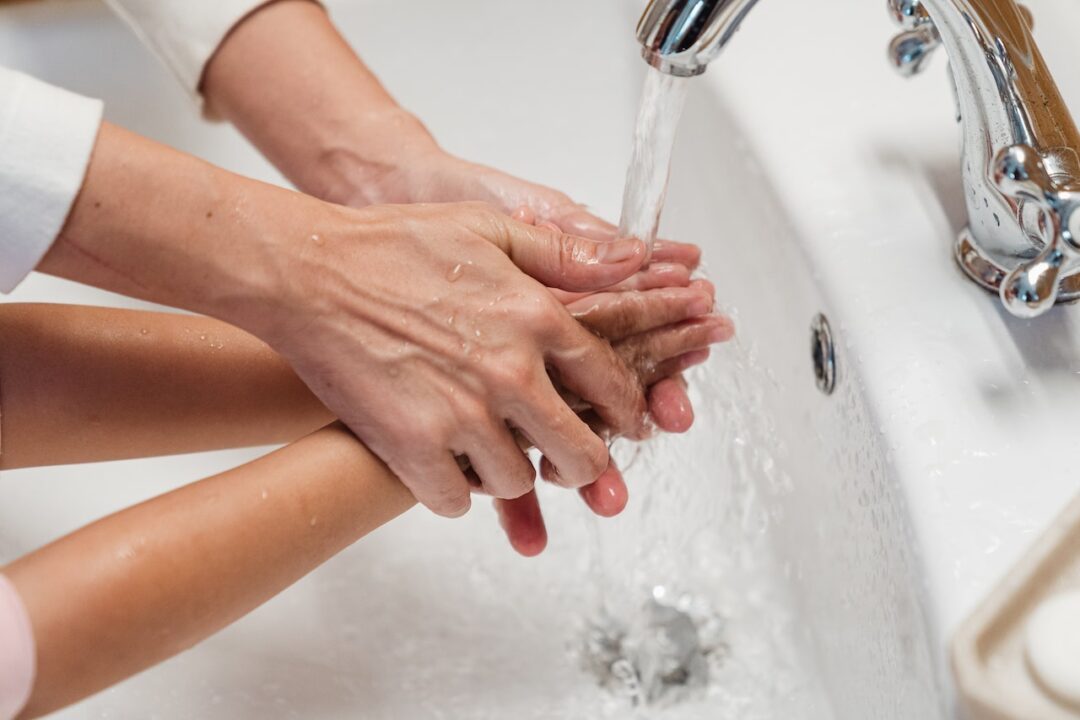Health
IT STARTS AT HOME: 5 TIPS FOR A HEALTHIER ABODE

Last Updated on February 25, 2024 by Joshua Isibor
Your home gives you a sense of belonging. This is the place where you eat, sleep, laugh, and enjoy spending time with the people you love. When our homes are healthy, we are healthier too! However, a healthier home is not just about cleaning. It is about making some changes that have a big impact on our well-being in the long run. This particularly stands true for cities like Atlanta that face air quality challenges due to pollution from vehicles and industries.
However, do not assume you need to be an expert to accomplish this objective. If you are curious about how to make your home healthier, keep reading:
1. Keep An Eye On Gutters
When gutters are clogged with debris, water can overflow and seep into the walls and foundation. If unchecked, it will lead to mold growth. Remember, mold reproduces by releasing tiny spores into the air, which, when inhaled, can trigger allergic reactions in sensitive individuals. By simply being attentive to the condition of your gutters, you can prevent a cascade of health issues.
If your gutters are in shambles due to recent water damage, DIY cleaning might not be a wise option. Instead, it would be wise to consider a water damage restoration company. These professionals understand the intricacies of gutter systems and can assess the extent of damage accurately. Depending on your location, the frequency of hiring a water damage company might vary. Atlanta, for instance, is known for keeping up with heavy rainfall. The Intense and prolonged rain can overwhelm gutters a lot more compared to cities experiencing milder rain. Hence, you must hire the best Atlanta Water Damage Restoration company to get lasting results.
2.Avoid Smoking Indoors
In many households, smoking indoors is a common practice. Whether it is a habit, for convenience, or to live up to social norms, people do not hesitate to casually light up a cigarette within the confines of their homes. However, the consequences of indoor smoking have been comprehensively studied and documented. They shed light on the detrimental impact it can have on the health of everyone living in the household.
Pollutants released from cigarettes can linger in the air and on surfaces long after the smoke has cleared. These pollutants pose a serious threat, especially to individuals with existing health conditions. Secondhand smoke contains over 7,000 chemicals, hundreds of which are toxic, and about 70 can cause cancer. When these chemicals are inhaled, they may result in various health problems such as respiratory infections, asthma, sudden infant death syndrome (SIDS), and even developmental issues in children.
Apart from health concerns, smoking indoors may create residue. It can cling to walls, carpets, and furniture. According to various credible studies, the residue can impact the overall indoor air quality of the home. To make matters worse, thirdhand smoke residue is notoriously challenging to remove from indoor environments. It is because these microscopic particles penetrate deeply into porous materials.
So, if you or someone in your house smokes, establish designated outdoor smoking areas away from entrances and windows.
3. Regularly Change Air Filters
Air filters play a pivotal role in maintaining the air quality inside your home. They keep the air free from dust, pollen, pet dander, and other airborne particles. Now, as effective as these filters are, they are not invincible. Over time, air filters can get worn out, and that is perfectly normal, considering the constant onslaught of particles they have to deal with.
When air filters become clogged, they cannot trap as many particles, and what is worse, they might start releasing the captured pollutants back into the air. So, instead of maintaining a clean environment, you are essentially circulating dirty air throughout your home.
That is why you should prioritize changing air filters regularly. It guarantees that your indoor air remains as clean as possible. Moreover, fresh filters provide optimal airflow, reduce energy consumption, and extend the life of your heating and cooling system.
Typically, experts recommend changing air filters every 3-6 months. However, if you have allergies or pets or live in an area with high pollen or pollution levels, you might consider replacing them more frequently.
4. Use Eco-Friendly Home Products
Many traditional home products contain a myriad of chemicals. They are harmful to both the environment and the health of the people living in the home. For instance, common household cleaners usually carry volatile organic compounds (VOCs), ammonia, and bleach. All these chemicals contribute to indoor air pollution and have been linked to various respiratory issues.
In contrast, eco-friendly household products are a healthier alternative. These products are typically made from natural, biodegradable ingredients that do not release harmful chemicals into the air. For example, eco-friendly cleaning products use plant-based ingredients like vinegar, baking soda, and essential oils. They work in tandem to get the job done more effectively without posing any health risks. Moreover, eco-friendly products are also kinder to the environment as they do not dispose of dangerous substances in water systems.
So next time you buy home products, look for certifications such as USDA Organic, Energy Star, Fair Trade, or EcoLogo on product labels. These certifications indicate that the product meets specific environmental and ethical standards. It is also a good practice to research the company. Reputable eco-friendly companies are transparent about their sourcing, production processes, and environmental initiatives.
5.Bring In Natural Light
There is something inherently soothing about the warm embrace of sunlight filtering through your windows. But beyond the aesthetic appeal, natural light offers a plethora of health benefits that often go unnoticed.
To begin with, natural light is a natural mood enhancer. Sunlight triggers the brain to release serotonin. It boosts our mood and helps ward off feelings of depression and anxiety. Plus, it has tangible effects on your sleep quality as well. Natural light regulates our body’s internal clock that governs our sleep-wake cycle. This makes it easier for us to fall asleep and wake up refreshed.
Enlarging existing windows or adding new ones is arguably one of the best ways to bring in natural light. If structural limitations prevent these changes, consider installing a bay or bow window. These types of windows project outward from the house and can capture light from different angles.
Conclusion
We often assume that our homes are safe havens. But that is not always the case. In fact, sometimes you could be more vulnerable to diseases inside your home than outside. But the good news is that you can take small measures to keep your house a lot healthier. Follow these tips for a home where you and your loved ones can breathe better and live healthier.
ALSO, READ Top 5 Home Security Gadgets to Keep You Safe
Originally posted 2023-10-23 15:48:09.


-



 Text Messages5 months ago
Text Messages5 months agoBEST LOVE CONFESSION MESSAGES FOR HER OR HIM
-



 Sex Education3 months ago
Sex Education3 months ago10 Simple Hack to Make a Girl Send Her Nudes
-



 Text Messages5 months ago
Text Messages5 months agoHeart Touching RIP Uncle Quotes
-



 Text Messages5 months ago
Text Messages5 months agoBest Good Luck Wishes Before and After Surgery, for Family and Friends
-



 Text Messages6 months ago
Text Messages6 months agoFreaky and Dirty Paragraphs For Him Copy And Paste Yahoo
-



 Uncategorized3 months ago
Uncategorized3 months agoHOW TO FALL IN LOVE WITH YOURSELF
-



 Uncategorized4 months ago
Uncategorized4 months agoHOW TO KISS A BOY FOR THE FIRST TIME
-



 Health5 months ago
Health5 months ago5 Unknown Ways To Maintain Skin Health